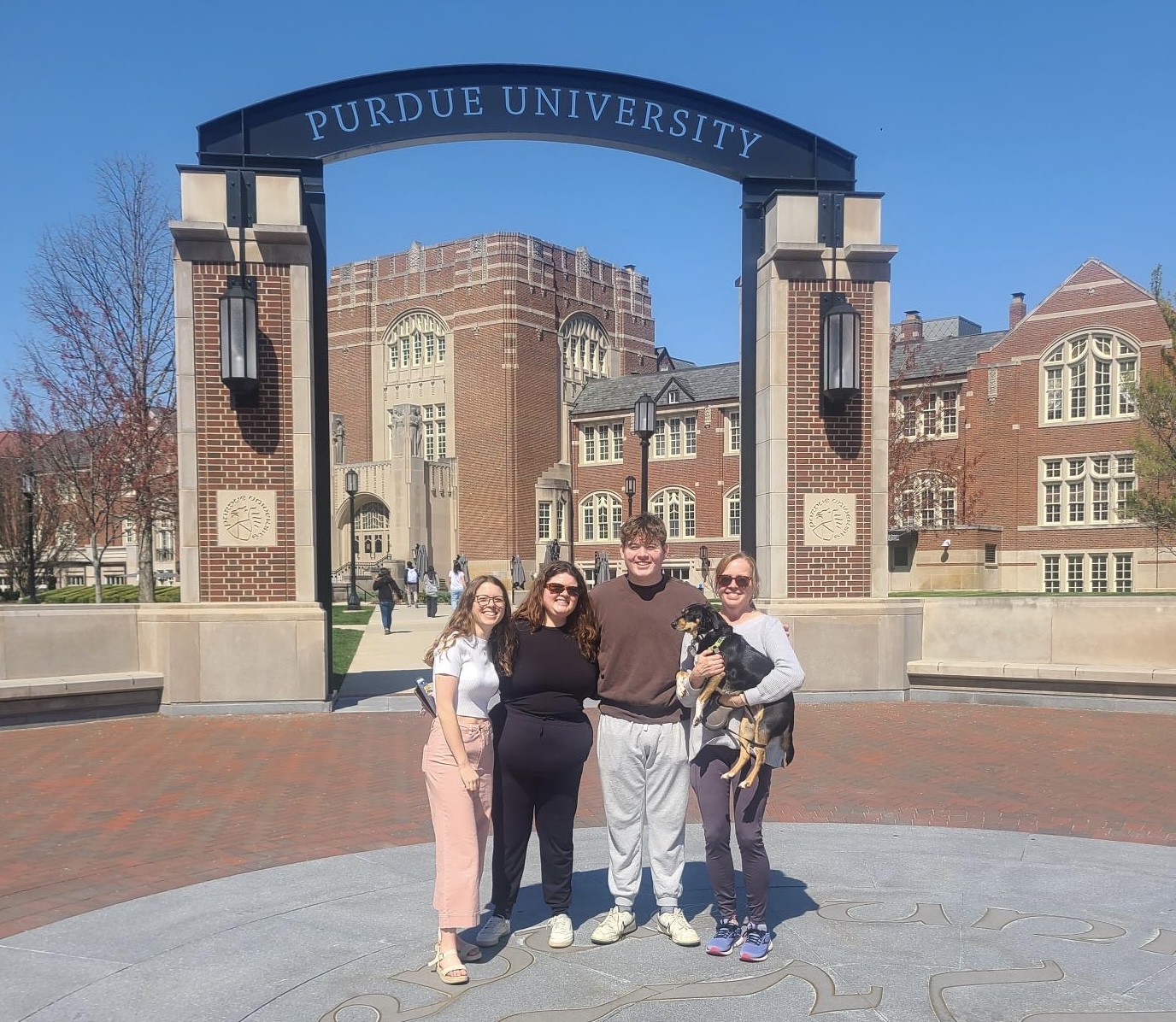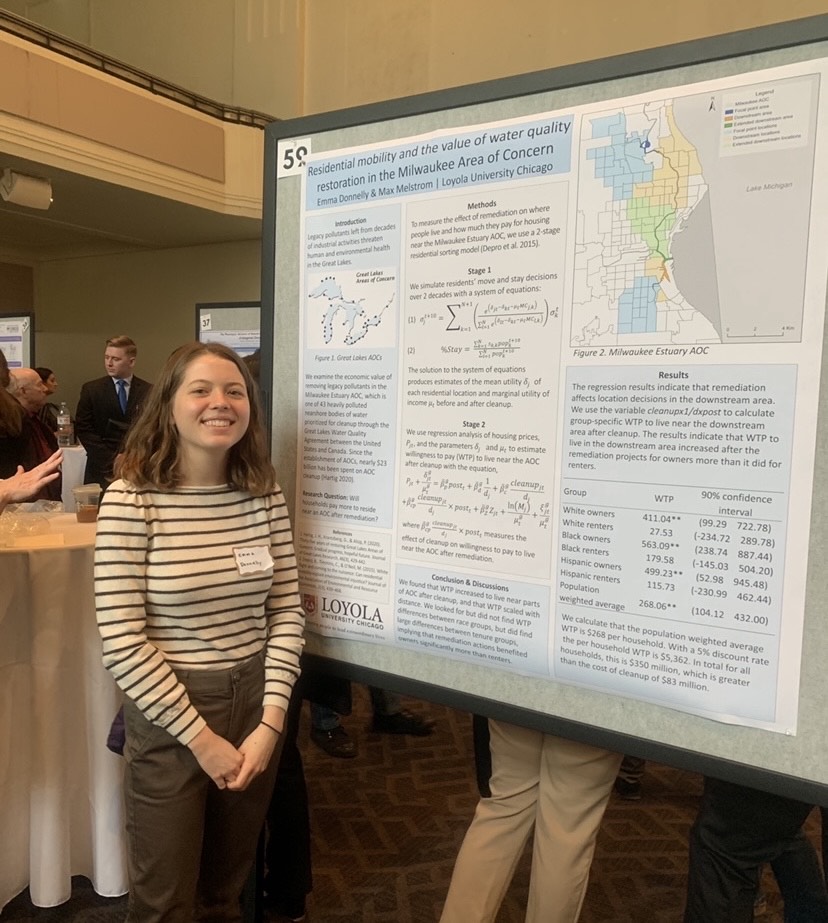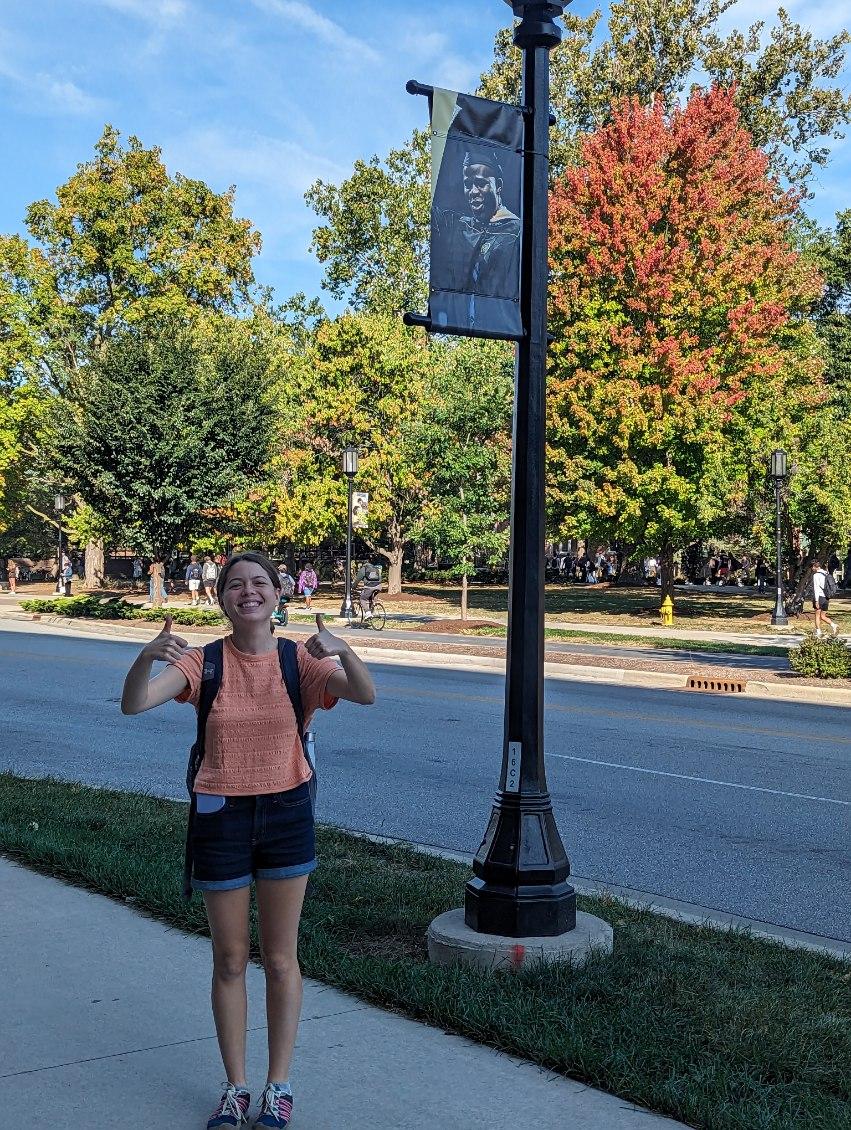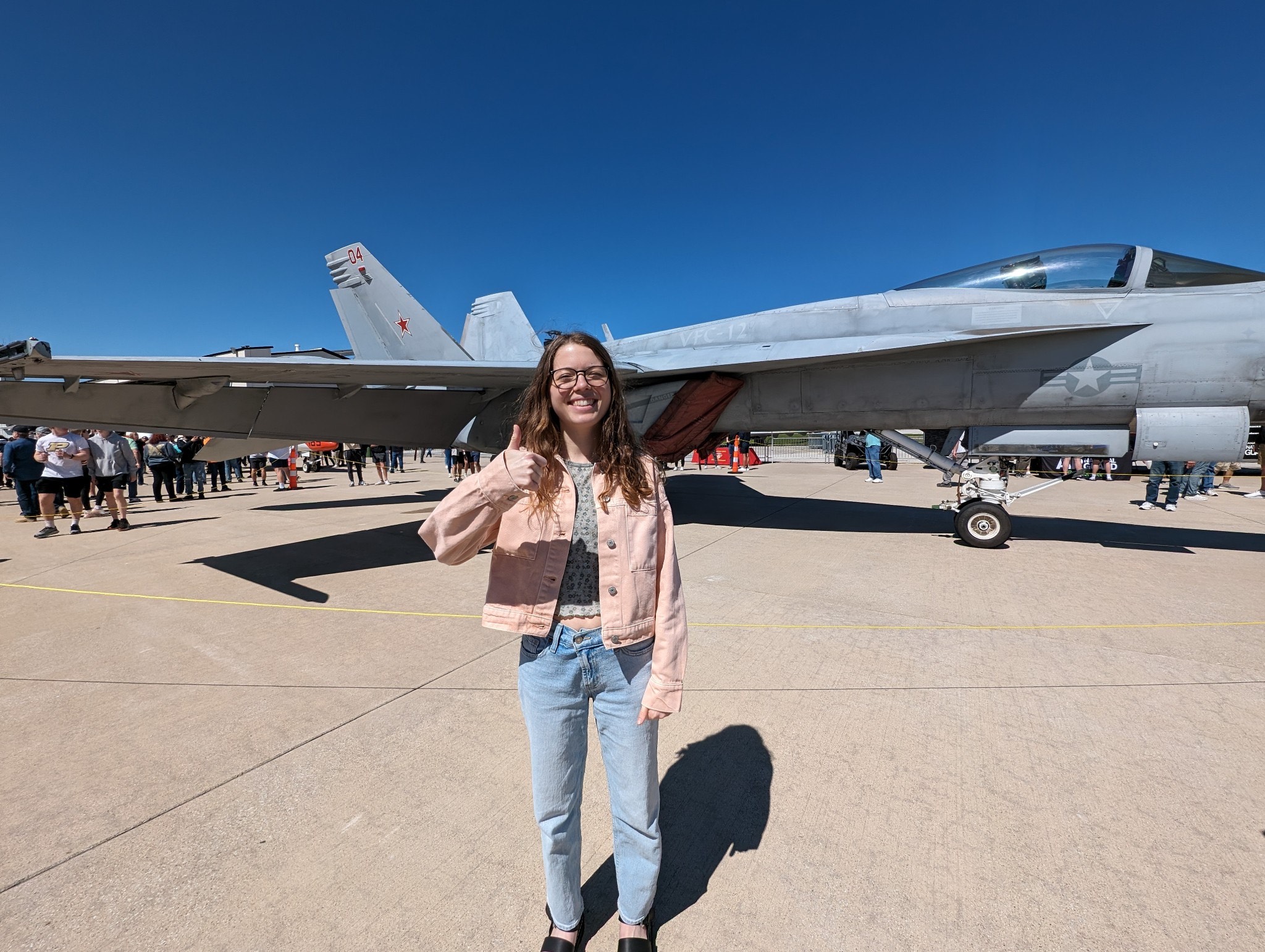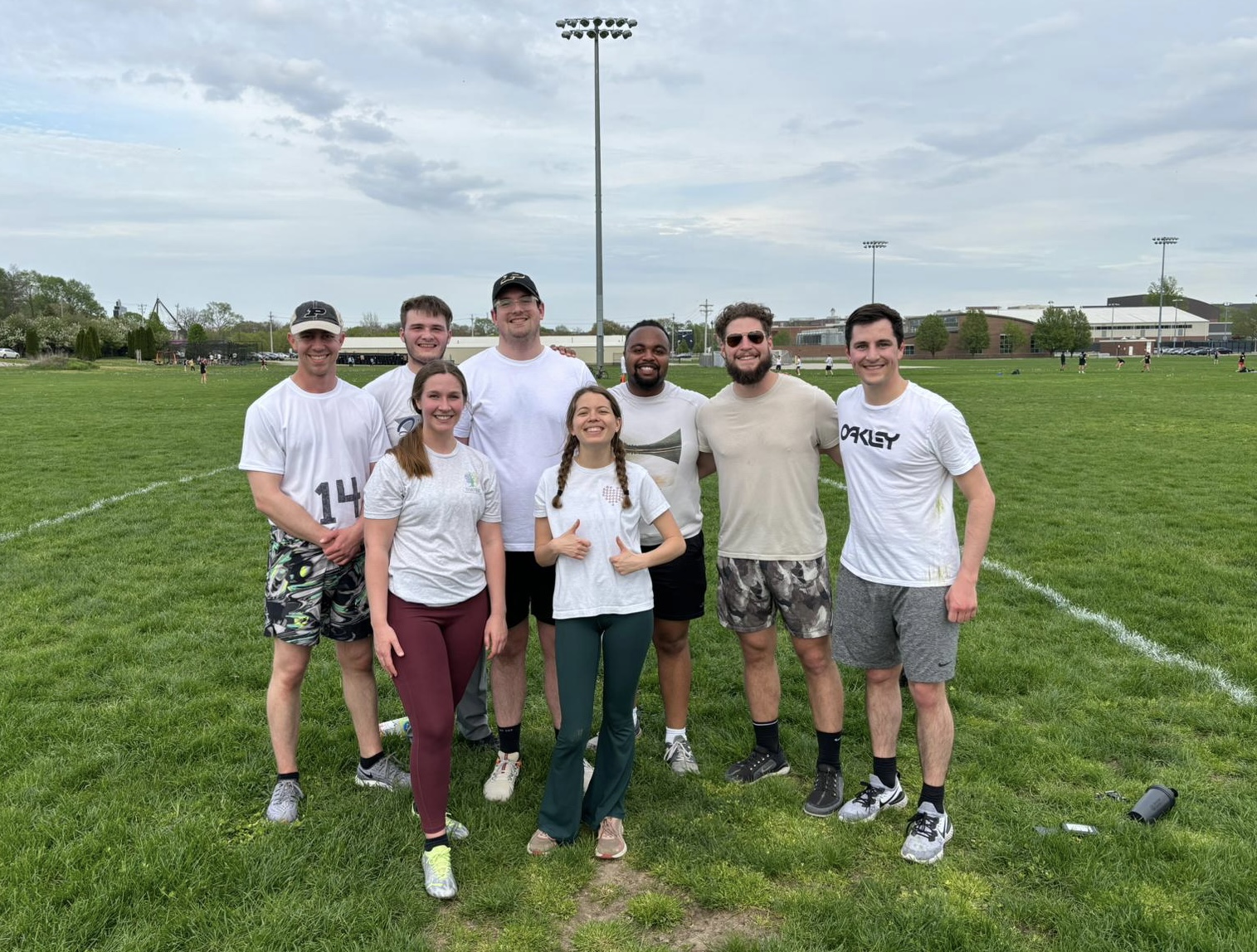Diverse Academic Journey Equips Purdue Ph.D. Student to Influence Policy Makers
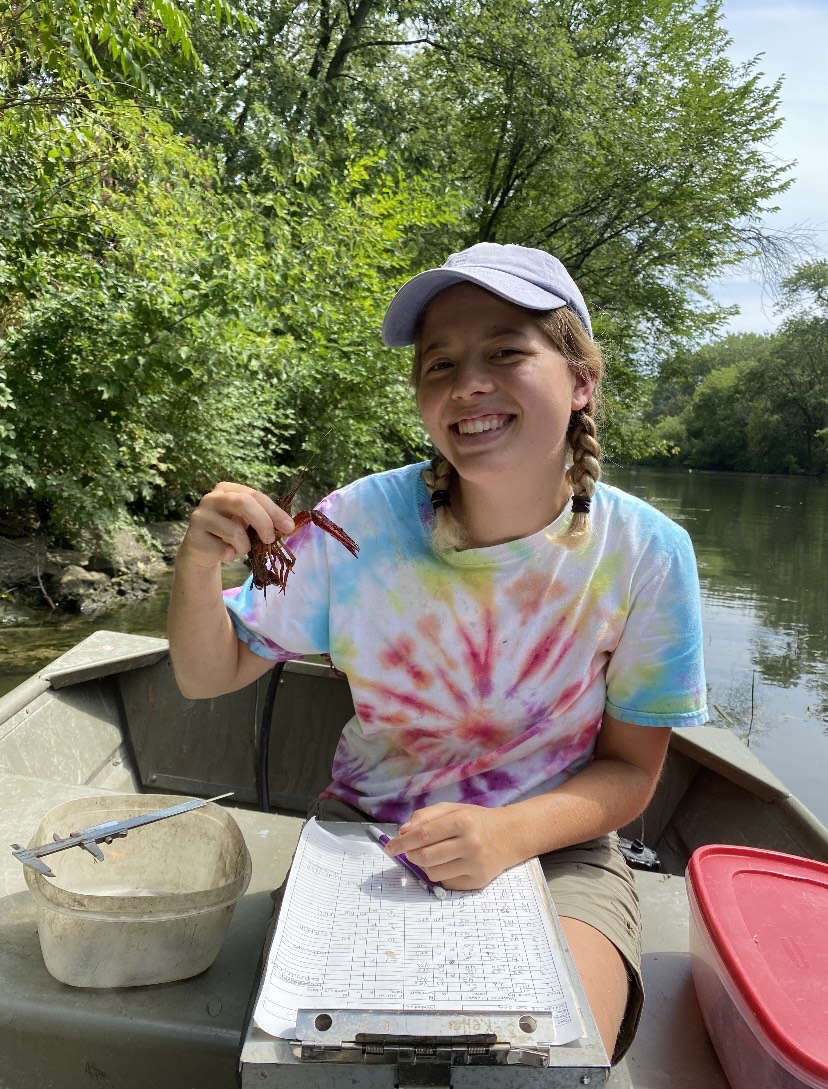 Emma Donnelly's academic journey is a unique blend of her upbringing in the Chicago area, her collegiate tenure along the lakeshore, and her lifelong appreciation of the Great Lakes. Originally from Naperville, Illinois, Emma has found herself in West Lafayette to pursue her Ph.D. in Agricultural Economics. Under the guidance of Dr. Carson Reeling, Emma is currently working with nonmarket valuation research in collaboration with the Indiana Department of Natural Resources.
Emma Donnelly's academic journey is a unique blend of her upbringing in the Chicago area, her collegiate tenure along the lakeshore, and her lifelong appreciation of the Great Lakes. Originally from Naperville, Illinois, Emma has found herself in West Lafayette to pursue her Ph.D. in Agricultural Economics. Under the guidance of Dr. Carson Reeling, Emma is currently working with nonmarket valuation research in collaboration with the Indiana Department of Natural Resources.
Emma earned her bachelor’s and master’s degrees from Loyola University of Chicago. While in Chicago, Emma studied Environmental Policy and obtained her M.S. in Environmental Science and Sustainability in the research track through Loyola’s 4+1 B.S.-M.S. program. She found that many professors were involved in research related to the Great Lakes, making it a prominent topic in her classes. During her first semester, she took a statistics course taught by an invasive species ecologist, which allowed her to work in his lab and spend her summer on a boat researching invasive crayfish.
“This gave me a different perspective on research that I couldn’t have gotten from economics,” she says. “Rather than just seeing the invasive crayfish data in an Excel sheet on my computer, I was actually in the water collecting the data.”
Inspired by this opportunity and her admiration of the lakes, Emma focused her thesis research on studying the economic benefits of water quality restoration through the Great Lakes Area of Concern (AOC) program. This work ignited her passion for the field, prompting her to pursue a Ph.D. in Agricultural Economics.
At Purdue, Emma is advised by Dr. Carson Reeling, whose research focuses on designing policies to manage nonpoint source pollution from agricultural lands. The alignment of research interests with Dr. Reeling’s has made this program a perfect fit for her.
“I am confident that under his mentorship, I will be able to effectively explore my interest in water policy, climate change, and environmental justice, and to develop research skills necessary for a career in academia.” As she looks ahead, she recognizes that Purdue represents the kind of academic program where she envisions building her career.
While pursuing her Ph.D., Emma finds herself involved in nonmarket valuation research, an area she finds truly enjoyable. Made possible through a collaboration with the Indiana Department of Natural Resources, her current project focuses on validating the contingent valuation method (CVM) and producing estimates of willingness to pay (WTP) for hunting permits using survey data, specifically examining the economic value of sandhill crane hunting. Emma finds this project particularly exciting because her prior research focused on analyzing the repercussions of past policy choices. In contrast, her current research project provides insights for upcoming decisions regarding the legalization of sandhill crane hunting. It will enable her research findings to directly shape the design of permits, and she aspires to continue this collaboration with governmental agencies, producing policy-relevant research.
Emma's research is not just about academic pursuits; it's about making a real-world impact. While she has dedicated much of her time to the sandhill crane project, she is also involved in another nonmarket valuation research project related to the Great Lakes. This project also produces estimates of WTP for environmental resources, crucial information that Emma believes can provide valuable insights to policymakers. She recognizes that these estimates can be used to make more sustainable management decisions and have broader implications on how people value the environment. Despite the challenges of estimating these values, Emma's research underscores the importance people place on environmental resources such as water quality and recreational activities like hunting and fishing.
 Reflecting on her journey, Emma attributes much of her current success to her proactive approach of asking questions and engaging with Purdue advisors, mentors, and peers. She emphasizes the value of self-teaching and catching up on subjects she hadn't encountered before starting the program, saying, "If you are starting with less experience in a certain area, it will probably require you to work harder to catch up, but it is worth it if you are serious about wanting to do this for your career. Also, you’ll be surrounded by knowledgeable people from different backgrounds at Purdue, so take advantage of that and learn from people around you."
Reflecting on her journey, Emma attributes much of her current success to her proactive approach of asking questions and engaging with Purdue advisors, mentors, and peers. She emphasizes the value of self-teaching and catching up on subjects she hadn't encountered before starting the program, saying, "If you are starting with less experience in a certain area, it will probably require you to work harder to catch up, but it is worth it if you are serious about wanting to do this for your career. Also, you’ll be surrounded by knowledgeable people from different backgrounds at Purdue, so take advantage of that and learn from people around you."
Building on her environmental science background, Emma hopes to continue expanding her knowledge of the agricultural industry and climate change as she begins formulating ideas for her Ph.D. dissertation.

